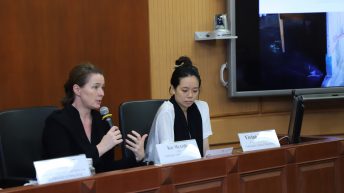Date:03Jul 2017
Can constitutional amendments be unconstitutional? This book analyses the trend in global constitutionalism to impose substantive limits on formal changes to constitutions. The challenge posed by the idea of unamendable constitutions to traditional constitutional thinking is heightened when courts enforce such limitations through judicial review of amendments, often resulting in the declaration that these constitutional amendments are “unconstitutional”. Combining historical comparisons, constitutional theory, and a wide comparative study, this book explains what the nature of amendment power is, what its limitations are, and what the role of constitutional courts is and should be when enforcing limitations on constitutional amendments. This book is based upon Dr Roznai’s PhD for which he was awarded the 2014 Thesis Prize of the European Group of Public Law.
This book talk would provide insights for understanding Article 159 of the Hong Kong Basic Law, which states that no amendment thereof shall contravene China’s basic policies towards Hong Kong, as well as the limits of the National People’s Congress Standing Committee’s powers of interpreting the Basic Law under Article 158.
Dr. Roznai, Senior Lecturer at Radzyner Law School of the IDC, specializes in comparative constitutional law, constitutional theory, legisprudence, and public international law. He holds a PhD and LLM from the London School of Economics, and LLB and BA degrees in law and government from the IDC. He is an elected board member and secretary general of the Israeli Association of Public Law. He has been a Post-Doctoral Fellow at the Minerva Center for the Rule of Law under Extreme Conditions, University of Haifa, and at the Hauser Global Law School, New York University, and a visiting researcher at the Program in Law and Public Affairs, Princeton University.




